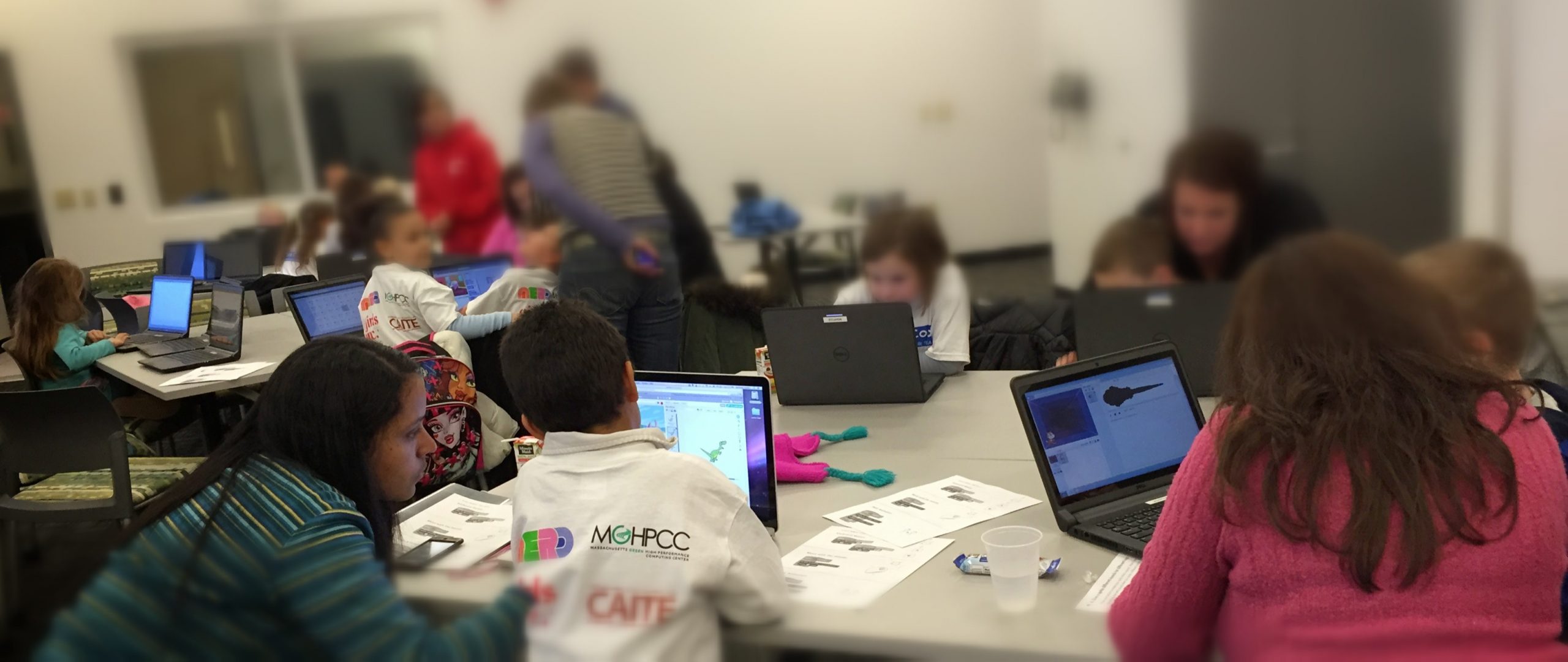
Along with local partners NERDs (New England Regional Developers), Girls Inc. of Holyoke and the Commonwealth Alliance for Information Technology Education (CAITE), the MGHPCC participated in Computer Science Education Week, December 8 – 14, 2014.
Computer Science Education Week is an annual program dedicated to inspiring K-12 students to take interest in computer science. Originally conceived by the Computing in the Core coalition, Code.org® is producing CSEdWeek for the first time this year, held in recognition of the birthday of computing pioneer Admiral Grace Murray Hopper (December 9, 1906).
Every weekday after school, and Saturday, kids and their parents came to the MGHPCC for an hour and a half of guided coding, using our educational laptops or bringing their own devices. Each free workshop focused on a different topic, led by our wonderful community volunteers including
HOUR OF CODE during which participants joined millions of people around the world to build their own code.
SCRATCH JR Coding for young kids ages 5 – 7 to make their own stories and games with characters that move, jump, dance, and sing.
ARTBOTICS Combining art and computer science to create robots that move and interact.
SCRATCH For kids to program their own interactive stories, games, and animations — and share their creations with others in the online community.
HOUR OF CODE FAMILY NIGHT Join millions of people around the world to build your own code.
MADE WITH CODE A Google coding party for girls "Code is in everything from your favorite music to your dream career."
SHARE YOUR CODE A lunch for sharing what you created, and being inspired by other people’s creations.
Many creative projects were started, and much fun was had by all. We’re pleased to say that this partnership is continuing to offer twice monthly workshops. Please see http://holyokecodes.org/ for more information!
Image Courtesy: Holyoke Codes